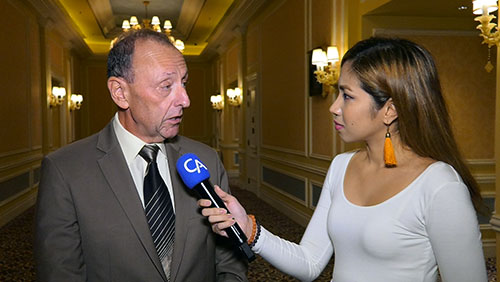In this interview with CalvinAyre.com’s Stephanie Tower, Andrew Klebanow of Global Market Advisors explains how hefty tax rates could ruin the U.S. sports betting market.
All eyes are on the estimated $150 billion sports betting market now that the U.S. Supreme Court has struck down the 1992 Professional and Amateur Sports Protection Act (PASPA).
Even before the high tribunal gave its judgment, a few states in the U.S. had already drafted, filed and passed legislation allowing sports betting in their respective jurisdictions. One of the contentious issues discussed by lawmakers is how to tax sports betting operators.
Andrew Klebanow of Global Market Advisors cautioned states against imposing hefty tax rates on sports betting if they want to reap betting’s benefits.
“States must decide on a fair and reasonable tax rate, or an unfair and unreasonable tax rate—we are already seeing states taking both sides of that issue. Look at Pennsylvania, they’re proposing collecting a tax in excess of 30 percent. It makes sports betting unfeasible,” Klebanow told CalvinAyre.com. “At some point, the tax rate becomes so high that the game becomes unfeasible. In Nevada, they offer a tax of 6.75 percent on sports revenue win. And then there’s a federal excise tax of 0.25 percent on total wagering handle.”
Klebanow also expressed his disapproval on the so-called integrity fee sought by some professional sports leagues. The leagues, which once unalterably opposed sports betting, want a share of sports betting turnover as payment for expenses incurred for integrity monitoring. The problem is that the leagues are seeking compensation for the same product they provided when sports betting was still considered illegal, Klebanow said.
“So, they have no skin in the game, they have no risk. Simply because they are providing the same product they are providing yesterday, they would like to collect an excise tax of 1 percent,” the gambling analyst said. “It is truly unfair. They’re not taking any risk. They are providing the same product and service they provided yesterday, and now it is all about what we call, for the lack of better term, a money grab.”
